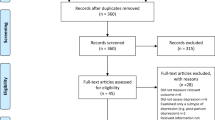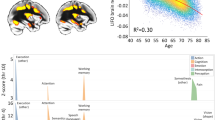Abstract
Background
Prior observational studies have suggested correlations between saturated fatty acids (SFAs) and monounsaturated fatty acids (MUFAs) with cognitive function. However, causal relationships remains unclear.
Methods
We assessed the causal impact of two SFAs (palmitic acid [PA] and stearic acid [SA]) and two MUFAs (oleic acid [OA] and palmitoleic acid [POA]) on cognitive function-related traits, and dementia-related traits by univariable Mendelian randomization (UVMR) and multivariable Mendelian randomization (MVMR) analyses.
Results
UVMR indicated β of 0.060 (P = 4.05E−06) for cognitive performance score and 0.066 (P = 4.21E−04) for fluid intelligence per standard deviation (SD) increase in OA level. MVMR indicated: (i) β of −0.608 (P = 8.37E−05) for fluid intelligence score per SD increase in POA; (ii) β of 0.074 (P = 0.018) for fluid intelligence score per SD increase in OA; (iii) β of 0.029 (P = 0.033) for number of incorrect matches in round per SD increase in PA; and (iv) β of 0.039 (P = 0.032) for number of incorrect matches in round per SD increase in SA. In addition, a secondary MVMR analysis after excluding the effect of polyunsaturated fatty acids suggested that: (i) β of −0.043 (P = 1.97E−02) for cognitive performance score per SD increase in PA and (ii) β of −0.079 (P = 1.79E−03) for cognitive performance score per SD increase in SA.
Conclusions
Overall, UVMR and MVMR suggest that OA may be beneficial for cognitive function, while POA, PA, and SA may have detrimental effects on cognitive function.
This is a preview of subscription content, access via your institution
Access options
Subscribe to this journal
Receive 12 print issues and online access
$259.00 per year
only $21.58 per issue
Buy this article
- Purchase on Springer Link
- Instant access to full article PDF
Prices may be subject to local taxes which are calculated during checkout

Similar content being viewed by others
Data availability
The GWAS summary statistics used for this MR study are shown in Supplementary Table S1.
Code availability
The code used for this study is available at https://doi.org/10.6084/m9.figshare.25335814.v1.
References
Turrini S, Wong B, Eldaief M, Press DZ, Sinclair DA, Koch G, et al. The multifactorial nature of healthy brain ageing: Brain changes, functional decline and protective factors. Ageing Res Rev. 2023;88:101939 https://doi.org/10.1016/j.arr.2023.101939.
Livingston G, Huntley J, Sommerlad A, Ames D, Ballard C, Banerjee S, et al. Dementia prevention, intervention, and care: 2020 report of the Lancet Commission. Lancet. 2020;396:413–46. https://doi.org/10.1016/s0140-6736(20)30367-6.
Naqvi AZ, Harty B, Mukamal KJ, Stoddard AM, Vitolins M, Dunn JE. Monounsaturated, trans, and saturated Fatty acids and cognitive decline in women. J Am Geriatrics Soc. 2011;59:837–43. https://doi.org/10.1111/j.1532-5415.2011.03402.x.
Barnard ND, Bunner AE, Agarwal U. Saturated and trans fats and dementia: a systematic review. Neurobiol Aging. 2014;35:S65–73. https://doi.org/10.1016/j.neurobiolaging.2014.02.030.
Solfrizzi V, Capurso C, D’Introno A, Colacicco AM, Frisardi V, Santamato A, et al. Dietary fatty acids, age-related cognitive decline, and mild cognitive impairment. J Nutr Health Aging. 2008;12:382–6. https://doi.org/10.1007/bf02982670.
Okereke OI, Rosner BA, Kim DH, Kang JH, Cook NR, Manson JE, et al. Dietary fat types and 4-year cognitive change in community-dwelling older women. Ann Neurol. 2012;72:124–34. https://doi.org/10.1002/ana.23593.
Fan R, Zhao L, Ding BJ, Xiao R, Ma WW. The association of blood non-esterified fatty acid, saturated fatty acids, and polyunsaturated fatty acids levels with mild cognitive impairment in Chinese population aged 35-64 years: a cross-sectional study. Nutritional Neurosci. 2021;24:148–60. https://doi.org/10.1080/1028415x.2019.1610606.
Yuan L, Zhen J, Ma W, Cai C, Huang X, Xiao R. The Erythrocyte Fatty Acid Profile and Cognitive Function in Old Chinese Adults. Nutrients. 2016;8:385 https://doi.org/10.3390/nu8070385.
Shen J, Yu H, Li K, Ding B, Xiao R, Ma W. The Association Between Plasma Fatty Acid and Cognitive Function Mediated by Inflammation in Patients with Type 2 Diabetes Mellitus. Diabetes Metab Syndr Obes Targets Ther. 2022;15:1423–36. https://doi.org/10.2147/dmso.S353449.
Smith GD, Ebrahim S. ‘Mendelian randomization’: can genetic epidemiology contribute to understanding environmental determinants of disease? Int J Epidemiol. 2003;32:1–22. https://doi.org/10.1093/ije/dyg070.
Lawlor DA, Harbord RM, Sterne JA, Timpson N, Davey Smith G. Mendelian randomization: using genes as instruments for making causal inferences in epidemiology. Stat Med. 2008;27:1133–63. https://doi.org/10.1002/sim.3034.
Sekula P, Del Greco MF, Pattaro C, Köttgen A. Mendelian Randomization as an Approach to Assess Causality Using Observational Data. J Am Soc Nephrol. 2016;27:3253–65. https://doi.org/10.1681/asn.2016010098.
Tomata Y, Larsson SC, Hägg S. Polyunsaturated fatty acids and risk of Alzheimer’s disease: a Mendelian randomization study. Eur J Nutr. 2020;59:1763–6. https://doi.org/10.1007/s00394-019-02126-x.
Zhu X, Huang S, Kang W, Chen P, Liu J. Associations between polyunsaturated fatty acid concentrations and Parkinson’s disease: A two-sample Mendelian randomization study. Front aging Neurosci. 2023;15:1123239 https://doi.org/10.3389/fnagi.2023.1123239.
Davies NM, Holmes MV, Davey Smith G. Reading Mendelian randomisation studies: a guide, glossary, and checklist for clinicians. BMJ. 2018;362:k601 https://doi.org/10.1136/bmj.k601.
Wu JH, Lemaitre RN, Manichaikul A, Guan W, Tanaka T, Foy M, et al. Genome-wide association study identifies novel loci associated with concentrations of four plasma phospholipid fatty acids in the de novo lipogenesis pathway: results from the Cohorts for Heart and Aging Research in Genomic Epidemiology (CHARGE) consortium. Circ Cardiovasc Genet. 2013;6:171–83. https://doi.org/10.1161/circgenetics.112.964619.
Lee JJ, Wedow R, Okbay A, Kong E, Maghzian O, Zacher M, et al. Gene discovery and polygenic prediction from a genome-wide association study of educational attainment in 1.1 million individuals. Nat Genet. 2018;50:1112–21. https://doi.org/10.1038/s41588-018-0147-3.
Davies G, Lam M, Harris SE, Trampush JW, Luciano M, Hill WD, et al. Study of 300,486 individuals identifies 148 independent genetic loci influencing general cognitive function. Nat Commun. 2018;9:2098 https://doi.org/10.1038/s41467-018-04362-x.
Bellenguez C, Küçükali F, Jansen IE, Kleineidam L, Moreno-Grau S, Amin N, et al. New insights into the genetic etiology of Alzheimer’s disease and related dementias. Nat Genet. 2022;54:412–36. https://doi.org/10.1038/s41588-022-01024-z.
Kurki MI, Karjalainen J, Palta P, Sipilä TP, Kristiansson K, Donner KM, et al. FinnGen provides genetic insights from a well-phenotyped isolated population. Nature. 2023;613:508–18. https://doi.org/10.1038/s41586-022-05473-8.
Boehm FJ, Zhou X. Statistical methods for Mendelian randomization in genome-wide association studies: A review. Comput Struct Biotechnol J. 2022;20:2338–51. https://doi.org/10.1016/j.csbj.2022.05.015.
Zheng J, Baird D, Borges MC, Bowden J, Hemani G, Haycock P, et al. Recent Developments in Mendelian Randomization Studies. Curr Epidemiol Rep. 2017;4:330–45. https://doi.org/10.1007/s40471-017-0128-6.
Kamat MA, Blackshaw JA, Young R, Surendran P, Burgess S, Danesh J, et al. PhenoScanner V2: an expanded tool for searching human genotype-phenotype associations. Bioinformatics. 2019;35:4851–3. https://doi.org/10.1093/bioinformatics/btz469.
Guan W, Steffen BT, Lemaitre RN, Wu JHY, Tanaka T, Manichaikul A, et al. Genome-wide association study of plasma N6 polyunsaturated fatty acids within the cohorts for heart and aging research in genomic epidemiology consortium. Circ Cardiovasc Genet. 2014;7:321–31. https://doi.org/10.1161/circgenetics.113.000208.
Lemaitre RN, Tanaka T, Tang W, Manichaikul A, Foy M, Kabagambe EK, et al. Genetic loci associated with plasma phospholipid n-3 fatty acids: a meta-analysis of genome-wide association studies from the CHARGE Consortium. PLoS Genet. 2011;7:e1002193 https://doi.org/10.1371/journal.pgen.1002193.
Shen W, Song Z, Zhong X, Huang M, Shen D, Gao P et al. Sangerbox: A comprehensive, interaction‐friendly clinical bioinformatics analysis platform. Imeta. 2022;1:e36.
Dumas JA, Bunn JY, Nickerson J, Crain KI, Ebenstein DB, Tarleton EK, et al. Dietary saturated fat and monounsaturated fat have reversible effects on brain function and the secretion of pro-inflammatory cytokines in young women. Metab Clin Exp. 2016;65:1582–8. https://doi.org/10.1016/j.metabol.2016.08.003.
Baierle M, Vencato PH, Oldenburg L, Bordignon S, Zibetti M, Trentini CM, et al. Fatty acid status and its relationship to cognitive decline and homocysteine levels in the elderly. Nutrients. 2014;6:3624–40. https://doi.org/10.3390/nu6093624.
Little JP, Madeira JM, Klegeris A. The saturated fatty acid palmitate induces human monocytic cell toxicity toward neuronal cells: exploring a possible link between obesity-related metabolic impairments and neuroinflammation. J Alzheimers Dis. 2012;30:S179–183. https://doi.org/10.3233/jad-2011-111262.
Gupta S, Knight AG, Gupta S, Keller JN, Bruce-Keller AJ. Saturated long-chain fatty acids activate inflammatory signaling in astrocytes. J Neurochem. 2012;120:1060–71. https://doi.org/10.1111/j.1471-4159.2012.07660.x.
Yin J, Li S, Li J, Gong R, Jia Z, Liu J, et al. Association of serum oleic acid level with depression in American adults: a cross-sectional study. BMC Psychiatry. 2023;23:845 https://doi.org/10.1186/s12888-023-05271-0.
Sakurai K, Shen C, Shiraishi I, Inamura N, Hisatsune T. Consumption of Oleic Acid on the Preservation of Cognitive Functions in Japanese Elderly Individuals. Nutrients. 2021;13:284 https://doi.org/10.3390/nu13020284.
Omar SH. Mediterranean and MIND Diets Containing Olive Biophenols Reduces the Prevalence of Alzheimer’s Disease. Int J Mol Sci. 2019;20:2797 https://doi.org/10.3390/ijms20112797.
Mazza E, Fava A, Ferro Y, Rotundo S, Romeo S, Bosco D, et al. Effect of the replacement of dietary vegetable oils with a low dose of extravirgin olive oil in the Mediterranean Diet on cognitive functions in the elderly. J Transl Med. 2018;16:10 https://doi.org/10.1186/s12967-018-1386-x.
López-Miranda J, Pérez-Jiménez F, Ros E, De Caterina R, Badimón L, Covas MI, et al. Olive oil and health: summary of the II international conference on olive oil and health consensus report, Jaén and Córdoba (Spain) 2008. Nutr Metab Cardiovasc Dis. 2010;20:284–94. https://doi.org/10.1016/j.numecd.2009.12.007.
Kandel P, Semerci F, Mishra R, Choi W, Bajic A, Baluya D, et al. Oleic acid is an endogenous ligand of TLX/NR2E1 that triggers hippocampal neurogenesis. Proc Natl Acad Sci USA. 2022;119:e2023784119 https://doi.org/10.1073/pnas.2023784119.
Snigdha S, Astarita G, Piomelli D, Cotman CW. Effects of diet and behavioral enrichment on free fatty acids in the aged canine brain. Neuroscience. 2012;202:326–33. https://doi.org/10.1016/j.neuroscience.2011.12.002.
Barman M, Nilsson S, Torinsson Naluai Å, Sandin A, Wold AE, Sandberg AS. Single Nucleotide Polymorphisms in the FADS Gene Cluster but not the ELOVL2 Gene are Associated with Serum Polyunsaturated Fatty Acid Composition and Development of Allergy (in a Swedish Birth Cohort). Nutrients. 2015;7:10100–15. https://doi.org/10.3390/nu7125521.
Coltell O, Sorlí JV, Asensio EM, Barragán R, González JI, Giménez-Alba IM, et al. Genome-Wide Association Study for Serum Omega-3 and Omega-6 Polyunsaturated Fatty Acids: Exploratory Analysis of the Sex-Specific Effects and Dietary Modulation in Mediterranean Subjects with Metabolic Syndrome. Nutrients. 2020;12:310 https://doi.org/10.3390/nu12020310.
Acknowledgements
We would like to thank the GWAS Catalog database, IEU OpenGWAS project, Neale lab, and FinnGen consortium for providing GWAS summary-level statistics.
Funding
This research was funded by the Natural Science Foundation of Changsha City (No. kq2208356 to GL), Health Research Project of Hunan Provincial Health Commission (No. W20243026 to GL), Health Research Project of Hunan Provincial Health Commission (No. W20243009 to JT).
Author information
Authors and Affiliations
Contributions
Conceptualization: Guoxin Lin, Juan Tang; Methodology: Youjie Zeng, Si Cao; Software: Si Cao; Validation: Youjie Zeng, Si Cao; Formal analysis: Youjie Zeng, Si Cao; Investigation: Youjie Zeng, Si Cao; Resources: Guoxin Lin; Data Curation: Youjie Zeng, Si Cao; Writing - Original Draft: Youjie Zeng; Writing - Review & Editing: Guoxin Lin, Juan Tang; Visualization: Youjie Zeng, Si Cao; Supervision: Guoxin Lin; Project administration: Guoxin Lin, Juan Tang; Funding acquisition: Juan Tang, Guoxin Lin.
Corresponding authors
Ethics declarations
Competing interests
The authors declare no competing interests.
Ethical approval
The MR study was a secondary analysis based on publicly available GWAS summary level statistics and therefore no additional ethical approval or informed consent was required.
Additional information
Publisher’s note Springer Nature remains neutral with regard to jurisdictional claims in published maps and institutional affiliations.
Supplementary information
Rights and permissions
Springer Nature or its licensor (e.g. a society or other partner) holds exclusive rights to this article under a publishing agreement with the author(s) or other rightsholder(s); author self-archiving of the accepted manuscript version of this article is solely governed by the terms of such publishing agreement and applicable law.
About this article
Cite this article
Zeng, Y., Cao, S., Tang, J. et al. Effects of saturated and monounsaturated fatty acids on cognitive impairment: evidence from Mendelian randomization study. Eur J Clin Nutr (2024). https://doi.org/10.1038/s41430-024-01437-5
Received:
Revised:
Accepted:
Published:
DOI: https://doi.org/10.1038/s41430-024-01437-5



